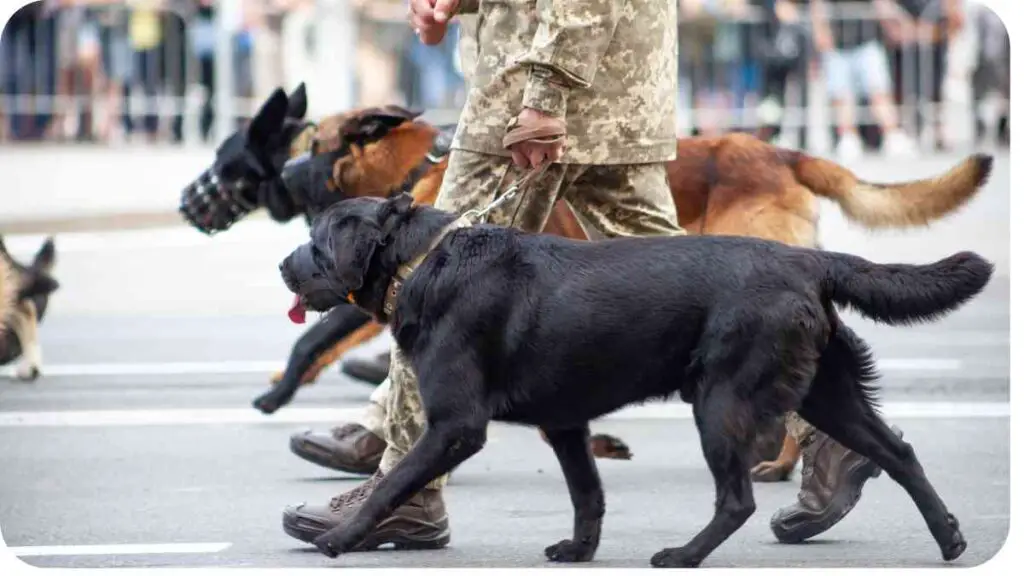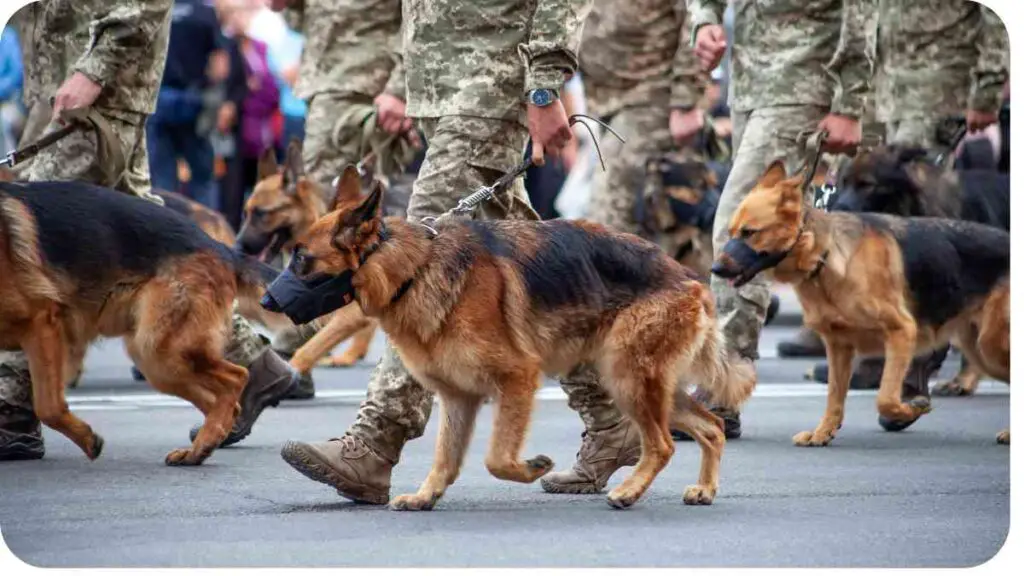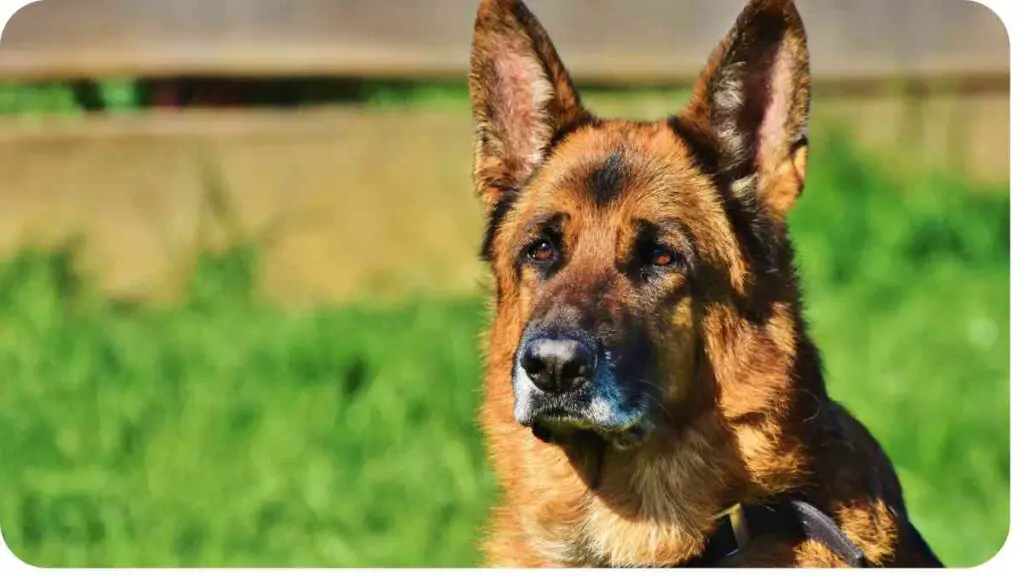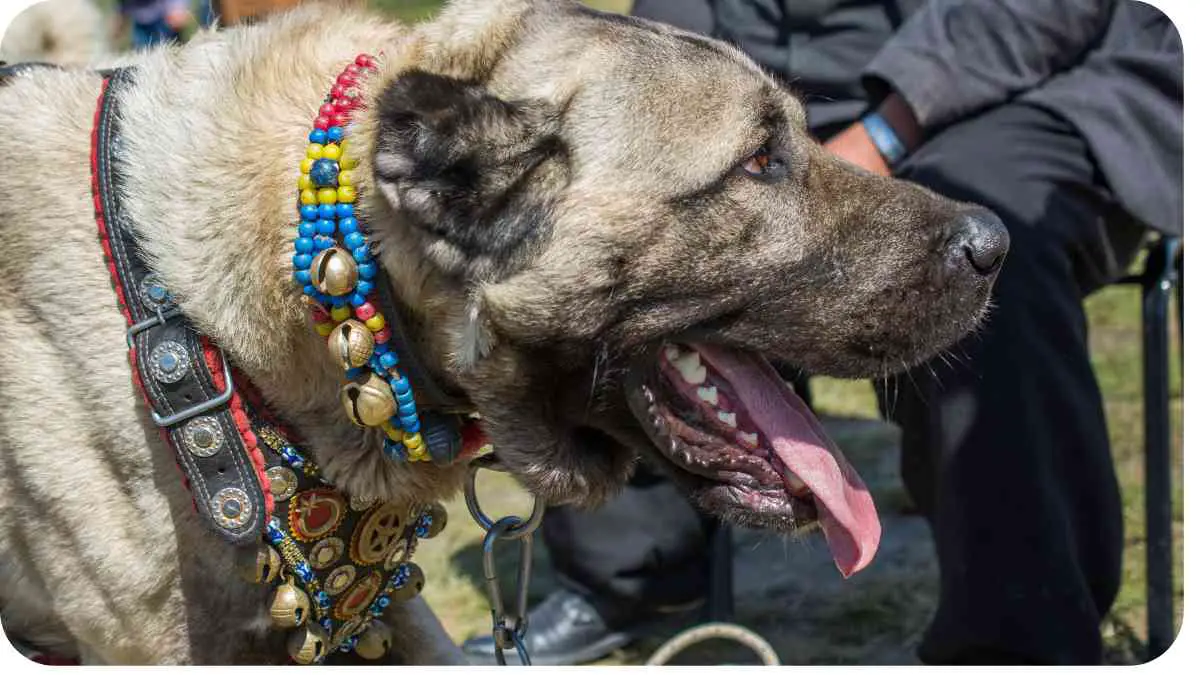When it comes to protecting your home and family, few things are as effective as a well-trained guard dog. These loyal companions not only provide security but also offer companionship and unconditional love. However, not all dog breeds are suited for the role of a guard dog.
In this guide, we’ll explore the top guard dog breeds for home protection and provide insights into their characteristics, training requirements, and more.
| Key Takeaways |
|---|
| 1. Choose a guard dog breed based on temperament, size, and trainability to ensure compatibility with your lifestyle and needs. |
| 2. Prioritize proper training and socialization to develop your guard dog’s protective instincts and obedience. |
| 3. Maintain your guard dog’s health through a balanced diet, regular exercise, grooming, and veterinary care. |
| 4. Consider additional resources and expert advice from reputable sources when researching guard dog breeds and home protection. |
| 5. Create a safe and secure environment for your family by selecting a reliable guard dog and investing in their well-being and training. |
2. Understanding Guard Dog Breeds

Guard dog breeds are specially bred for their protective instincts, strength, and intelligence. They are trained to identify potential threats and act accordingly to protect their territory and loved ones. These breeds typically exhibit traits such as loyalty, courage, and assertiveness, making them ideal for guarding homes, businesses, and properties.
German Shepherds, renowned for their loyalty and intelligence, excel as family protectors, earning the title of ‘ultimate guard dog.’ Their gentle demeanor and natural protective instincts make them ideal family companions, ensuring safety and security within the home.
3. Factors to Consider When Choosing a Guard Dog
Before selecting a guard dog breed, it’s essential to consider various factors to ensure the right fit for your lifestyle and needs. These factors include:
Table 1: Factors to Consider When Choosing a Guard Dog
| Factor | Description |
|---|---|
| Size | Consider the size of the breed and whether it’s suitable for your living space. |
| Temperament | Look for breeds with a balanced temperament that is both protective and trainable. |
| Energy Level | Assess the breed’s energy level and exercise requirements to ensure compatibility. |
| Trainability | Choose a breed known for its intelligence and ease of training. |
| Maintenance Needs | Consider grooming requirements, health concerns, and overall maintenance needs. |
| Compatibility | Evaluate how well the breed will fit into your family dynamic and lifestyle. |
By considering these factors, you can narrow down your options and find the perfect guard dog breed for your home.
4. Top Guard Dog Breeds for Home Protection

Now, let’s delve into the top guard dog breeds renowned for their protective instincts and suitability for home protection.
As integral members of the family unit, German Shepherds offer unparalleled loyalty and protection. Renowned for their versatility and unwavering devotion, they embody the essence of ideal family dogs, providing both companionship and security to households.
4.1 German Shepherd
German Shepherds are one of the most popular and versatile guard dog breeds. Known for their intelligence, loyalty, and agility, they excel in various roles, including police work, search and rescue, and, of course, guarding homes.
4.2 Rottweiler
Rottweilers are powerful and confident dogs with a natural protective instinct. They are fiercely loyal to their families and make excellent guard dogs due to their strength, fearlessness, and intimidating presence.
4.3 Doberman Pinscher
Doberman Pinschers are known for their sleek appearance and unwavering loyalty. With proper training and socialization, they become devoted family guardians, capable of detecting and deterring potential threats effectively.
4.4 Bullmastiff
Bullmastiffs are gentle giants with a strong protective instinct. Despite their imposing size, they are affectionate and loyal companions, making them excellent choices for home protection, especially for families with children.
4.5 Boxer
Boxers are known for their playful and energetic nature, but they also possess a natural instinct to protect their loved ones. With proper training, they can excel as guard dogs, combining vigilance with affection for their families.
4.6 Giant Schnauzer
Giant Schnauzers are intelligent and fearless dogs that excel in guarding and protecting their territory. Their imposing presence and strong protective instincts make them well-suited for home protection roles.
4.7 Akita
Akitas are known for their loyalty and dignified demeanor. While they can be aloof with strangers, they are fiercely protective of their families, making them excellent guard dogs for experienced owners.
4.8 Rhodesian Ridgeback
Rhodesian Ridgebacks are renowned for their courage and tenacity. Originally bred to hunt lions, they have a strong protective instinct and make loyal companions and guardians for their families.
4.9 Belgian Malinois
Belgian Malinois are highly intelligent and trainable dogs with a strong work ethic. They excel in various roles, including police work, search and rescue, and personal protection, making them a top choice for home security.
4.10 Tibetan Mastiff
Tibetan Mastiffs are large and powerful dogs with a protective nature. While they can be independent and stubborn, they form strong bonds with their families and are fiercely loyal and protective.
Stay tuned for the next part of the article, where we’ll compare these top guard dog breeds based on various factors such as temperament, size, and trainability, helping you make an informed decision.
5. Comparison of Top Guard Dog Breeds
When choosing a guard dog breed for your home, it’s essential to consider various factors to ensure the right fit for your lifestyle and needs. Let’s compare the top guard dog breeds based on temperament, size, trainability, and other crucial factors.
Dispelling misconceptions, German Shepherds, when properly trained and socialized, pose no inherent danger. Their protective instincts, coupled with their intelligence, make them formidable guardians, ensuring safety without undue risk to the family.
Table 2: Comparison of Top Guard Dog Breeds
| Breed | Temperament | Size | Trainability | Energy Level | Maintenance Needs |
|---|---|---|---|---|---|
| German Shepherd | Loyal, intelligent | Large | Highly trainable | High | Moderate |
| Rottweiler | Confident, loyal | Large | Moderate | Moderate | Low |
| Doberman Pinscher | Alert, loyal | Medium to large | Highly trainable | High | Low |
| Bullmastiff | Gentle, protective | Large | Moderate | Low to moderate | Low |
| Boxer | Playful, loyal | Medium to large | Moderate | High | Low |
| Giant Schnauzer | Fearless, alert | Large | Highly trainable | High | Moderate |
| Akita | Dignified, loyal | Large | Moderate | Moderate | Moderate |
| Rhodesian Ridgeback | Courageous, loyal | Large | Moderate | High | Low |
| Belgian Malinois | Intelligent, alert | Medium to large | Highly trainable | High | Low |
| Tibetan Mastiff | Protective, loyal | Large | Moderate | Moderate | Moderate |
This comparison table provides a quick overview of the top guard dog breeds’ key characteristics, helping you make an informed decision based on your preferences and lifestyle.
6. Training Your Guard Dog
Once you’ve selected the right guard dog breed for your home, it’s crucial to invest time and effort into training and socialization. Training your guard dog not only enhances their obedience but also strengthens the bond between you and your furry companion.
Table 3: Essential Training Tips for Guard Dogs
| Training Aspect | Description |
|---|---|
| Obedience Training | Teach basic commands such as sit, stay, come, and heel to establish control and discipline. |
| Socialization | Expose your dog to various people, animals, and environments from a young age to prevent aggression. |
| Guarding Commands | Train specific commands for alerting, barking, and ceasing aggression on command. |
| Bite Inhibition Training | Teach your dog to control the force of their bite to avoid causing harm unintentionally. |
| Consistency | Be consistent with training methods, rewards, and expectations to reinforce desired behaviors. |
By following these training tips and techniques, you can ensure that your guard dog is well-prepared to protect your home and family effectively.
Stay tuned for the next part of the article, where we’ll explore how to maintain your guard dog’s health and well-being to ensure they can fulfill their protective role for years to come.
German Shepherds, revered for their keen intellect and unwavering loyalty, rank among the finest guard dogs. Their innate sense of duty and exceptional trainability render them exceptional protectors, safeguarding homes with unwavering vigilance and dedication.
7. Maintaining Your Guard Dog’s Health

A healthy guard dog is essential for effective protection and companionship. To ensure your guard dog remains in optimal condition, it’s crucial to prioritize their health and well-being through proper nutrition, exercise, grooming, and regular veterinary care.
Table 4: Tips for Maintaining Your Guard Dog’s Health
| Aspect | Description |
|---|---|
| Nutrition | Provide a balanced diet rich in high-quality protein, vitamins, and minerals to support health. |
| Exercise | Ensure regular exercise to maintain physical fitness and mental stimulation. |
| Grooming | Brush your dog’s coat regularly to remove dirt, debris, and loose hair and prevent matting. |
| Veterinary Care | Schedule routine check-ups and vaccinations to monitor your dog’s health and prevent illnesses. |
| Dental Care | Brush your dog’s teeth regularly and provide dental chews or toys to promote oral health. |
By incorporating these health maintenance tips into your routine, you can help your guard dog lead a long, happy, and fulfilling life while ensuring they remain capable of fulfilling their protective duties.
Rottweilers, often underestimated in their capacity for gentleness, exhibit remarkable compatibility with other dogs. Contrary to misconceptions, their calm demeanor and amiable nature foster harmonious relationships, proving them exceptional companions in multi-dog households.
8. Conclusion
In conclusion, selecting the right guard dog breed for your home is a crucial decision that requires careful consideration of various factors such as temperament, size, trainability, and maintenance needs. By choosing from the top guard dog breeds discussed in this guide and following proper training and care protocols, you can enhance your home’s security while enjoying the companionship of a loyal and loving canine companion.
Whether you opt for a German Shepherd, Rottweiler, Doberman Pinscher, or any other breed on the list, remember that each dog is unique and may require individualized attention and training. With patience, consistency, and dedication, you can build a strong bond with your guard dog and create a safe and secure environment for your family.
Thank you for reading, and we wish you the best of luck in finding the perfect guard dog for your home protection needs!
Further Reading
Here are some additional resources to explore more about guard dog breeds and home protection:
- Top 11 Dog Breeds for Home Protection: Wag Walking provides a comprehensive list of the top dog breeds suited for home protection, along with detailed descriptions of their characteristics and traits.
- Best Guard Dogs: Breeds That Provide the Most Security for Your Home: Good Housekeeping offers insights into the best guard dog breeds for home security, including tips on training and care.
- Best Guard Dogs for Families and Homes: The Pioneer Woman presents a curated selection of guard dog breeds ideal for families and home protection, accompanied by personal anecdotes and recommendations.
FAQs
What are the key traits of a good guard dog?
A good guard dog should possess traits such as loyalty, intelligence, confidence, and a strong protective instinct.
How do I choose the right guard dog breed for my home?
When selecting a guard dog breed, consider factors such as temperament, size, trainability, and compatibility with your lifestyle and family dynamic.
Do guard dogs require special training?
Yes, guard dogs require proper training and socialization to fulfill their protective role effectively while also being well-behaved and obedient companions.
How can I maintain my guard dog’s health and well-being?
Maintain your guard dog’s health through proper nutrition, regular exercise, grooming, veterinary care, and dental hygiene practices.
Are guard dogs suitable for families with children?
Many guard dog breeds can be excellent companions for families with children, but it’s essential to choose a breed known for its gentle and tolerant nature and to supervise interactions between dogs and children.

I’m Dr. Hellen James, I’ve spent my career working with dogs, and I’ve seen first-hand how important it is to understand the individual needs of each breed. I want to share my knowledge of dog breeds with you so that you can make informed decisions about which dog will be best for your household and lifestyle.

